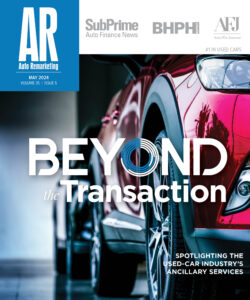UPDATED: Toyota Saga Continues to Unfold: NHTSA Launches New Probe
WASHINGTON, D.C. — In a new development in what seems to be an ever growing saga surrounding Toyota, the National Highway Traffic Safety Administration came out Tuesday saying that it is launching a probe to discover if the automaker launched three of its recent recalls in a timely fashion.
The NHTSA said it is calling upon its statutory authority to obtain Toyota documents that detail when and how the automaker learned of the defects. The NHTSA will look at such documentation as consumer complaints and factory testing. Did Toyota discover the defect during pre-production or post-production?
This is pertinent because federal law requires all automakers to notify NHTSA within five days of discovering a safety defect exists and promptly take action.
Other topics up for scrutiny include whether the automaker has placed recalls for all affected vehicles. NHTSA wants to ensure that Toyota did not miss any problems.
The government agency will also review information on production data, incidents, complaints, warranty complaints, copies of tests, dates of meetings, timelines and supplier information.
In essence, it appears the NHTSA is looking to cover all bases in its search for information.
The recalls covered by this probe include two related to the gas pedal/floor mat issue, while the third recall involves the sticking gas pedal.
If an automaker is found at fault of violating its statutory obligations, it could be found liable for up to $16.4 million in civil penalties.
"Safety recalls are very serious matter and automakers are required to quickly report defects," said U.S. Transportation Secretary Ray LaHood.
"Our top priority is safety and we expect that all manufacturers address automotive safety issues quickly and in a forthright manner," added David Strickland, Administrator for the NHTSA.
UPDATE:
Toyota said it would comply with NHTSA's probe. In a statement, the automaker indicated, "Toyota takes its responsibility to advance vehicle safety seriously and to alert government officials of any safety issue in a timely manner.
"We are reviewing NHTSA's request and will cooperate to provide all the information they have requested," officials said.
Also, in late breaking news, apparently Toyota is also now considering a recall of Corollas. A top executive with the company said they were investigating compliants about this model. However, he would give no details about model years and regions that could be impacted.
According to news reports, Toyota president Akio Toyoda said he would not attend a U.S. Congressional hearing on the company's quality issues. He said U.S. executives will appear.
In a press conference held today, Toyoda made the following statement:
"Repair operations began for the Prius this past weekend. To speak to customers and to encourage dealer staff members carrying out the repairs, I visited several Toyota sales outlets.
"The repair effort for the Prius is fast moving ahead, and, in Japan, including vehicles for which repair appointments are set, some dealer outlets are reporting they are already confident of attaining a 100 percent repair rate. This rapid progress is a tribute to the understanding and cooperation exhibited by our customers, to whom I would like to express my deepest gratitude.
"Also, we have completed preparations for repair operations for the Sai and Lexus HS250h, as we announced today in newspaper notices. Our dealers have begun notifying owners of those models today.
"Working with our dealers as one, we aim to attain a 100 percent repair rate as soon as possible, as we endeavor to provide our customers with vehicles that are safe and reassuring.
"Since autumn, we at Toyota have worked hard to address each of a number of quality issues. We conducted a safety campaign in the United States to respond to a problem with floor mats. We recalled vehicles to resolve a problem with accelerator pedals. And we recalled the Prius and other models to address a braking system issue. But against the backdrop of our efforts, there are a number of points on which we need to deeply reflect.
"Safety standards and technical benchmarks usually form the basis for decision-making on recalls. But in the case of the Prius and the other models, our highest priority was to provide customer reassurance. This prompted us to decide on a recall in a very short time. This emphasis on customer reassurance will continue to be a centerpiece of our actions.
"Next, I would like to talk about concerns over our technological and business accountability.
"News reports in the U.S. are spreading concern about the electronic throttle control system in Toyota vehicles, namely the electronic signals from the accelerator pedal that control the opening and closing of the throttle. These reports say the system can malfunction, resulting in sudden unintended acceleration.
"Our electronic throttle control system incorporates overlapping failsafe features linked to several sensors. The occurrence of any problem causes the system to return the engine to idling mode or to shut it off. We have conducted rigorous testing under extremes of electromagnetic interference, vibration and other adverse conditions to conclusively verify that the system cannot accidentally induce acceleration.
"We have also commissioned an independent, third-party research organization to test our electronic throttle control system, and we will release the findings of that testing as they become available.
"On another subject, I have worked to adapt our management to regional needs and circumstances since I became president last June. I have been considering the rapid growth in our manufacturing and marketing operations. And I have been eager to keep management decision-making close to our customers. We need to be where we can hear directly from our customers. That will enable us to incorporate customer feedback swiftly in research and development and, as necessary, in hands-on measures in the marketplace, including product recalls.
"To further promote this effort, the Special Committee on Global Quality, which I will head and which will include people in the post of chief quality officer from various regions, is now being set up. In the same spirit, we have strengthened our framework for conveying customer input from each region directly to our company's Quality Group and Product Development Group.
"Furthermore, to heighten the level of reassurance for those who use our vehicles, we will add a brake-override system, which cuts engine power when the accelerator and brake pedals are applied at the same time, to all future vehicle models worldwide.
"We will also make more active use of event data recorders. This is because we have recognized that we should enhance our information-gathering capabilities and because analysis of onboard data is useful for improving quality.
"I will continue to step out into our sales and manufacturing workplaces, and I join our dealers worldwide, our suppliers and our employees in reaffirming the Toyota commitment to unwavering quality in products and services and to the spirit of 'customer first.'"

 View The Latest Edition
View The Latest Edition

